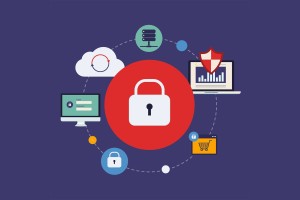How to use passwords: 10 simple rules
There’s a lot to be said about passwords. First, every year new generations discover the Internet and keep making the same mistakes as their predecessors, who in turn do not learn from their own mistakes.
 Second, even the old residents of the Internet want to know how to invent and remember several really good and unique passwords. And third, technology forges ahead, including developments created by cybercriminals.
Second, even the old residents of the Internet want to know how to invent and remember several really good and unique passwords. And third, technology forges ahead, including developments created by cybercriminals.
In earlier times, a six-symbol password was safe enough, now users need to invent combinations, which consist of at least eight symbols, but 15 is always better. And this comes hand in hand with two-factor authentication technique, smartphone fingerprints scanners, CAPTCHA and other security measures. These additional measures vary from device to device and all of them carry their own specific problems. That’s why passwords are inevitable. So, let’s clarify, what are the right and wrong ways to use them.
1. Lexicalized words, proper name and other combinations are no good when it comes to passwords. That’s why one should forget about such variants as 123457, dragon, letmein or qwerty.
2. Don’t use a foreign word, written in English letters. Hackers have special dictionaries, which contain such combinations, so this method gives no additional security at all.
3. As you can see, it’s better to invent and memorize reliable passwords. It’s rather hard to remember a meaningless combination, but you can easily learn symbols and figures that mean something personal for you.
4. Another good way to remember a password is to type it on a keyboard about a dozen times. As a result, you’ll start typing automatically, without questioning yourself “What comes next?” Moreover, high typing speed will protect you, when a curious coworker tries to remember your passwords by peeping over your shoulder. Unfortunately, this method won’t work so well when you start entering your passwords on your mobile devices. That’s why it’s better to use tips from points 3 and 4 simultaneously.
5. Remember that a good password should always contain figures and special symbols. More importantly, there should be both upper and lower case letters.
6. Never share your password with anybody, as well as the method you used to create it. For example, if criminals find out that you used words from your favorite song, they can examine your social media profile and thus engineer your password.
7. If you share a PC, a laptop or a tablet with your family members, never tell them your passwords – it’s better to make a separate user account for them. It has nothing to do with distrust: the thing is that your family can be tricked to give your password away or just accidentally leak it.
8. You should use unique passwords for your most important accounts, especially for your email, online bank and social networks. One or two reliable passwords that you use everywhere are not enough. Cyber criminals might face certain troubles when stealing your login credentials from a bank (though not obligatory), but they would definitely be more lucky on a poorly protected dating website or something like that. And then there will be the ripple effect: a criminal will hack your accounts one after another.
9. Apart from traditional passwords you should enable two-factor authentication on all important accounts. If a criminal hacks or somehow finds out your super-reliable password, this method will protect you.
10. If you are sick and tired of all these discussions about passwords, and you’d rather not to learn by hard several reliable combinations, you can use a special piece of software.
Axarhöfði 14,
110 Reykjavik, Iceland














